Nearly a month after a report critical of how New York State treats transgender and gender-nonconforming students, the state's Education Department Monday released guidelines on how school districts should accommodate them.
Among the recommendations: Schools should use the pronouns students prefer, use names that students prefer, keep two sets of records so birth names can be kept confidential, use sensitivity and protect students' privacy, and encourage administrators to be receptive when young people identify with and express a gender different from the one assigned at birth.
Also included in the new policy is important but controversial advice that has raised eyebrows in other states: that gender-nonconforming and trans children should use the bathroom that correlates with their gender identity. The guidelines attribute that instruction to letters issued by both the federal Education and Justice Departments, which say prohibiting them from doing so violates Title IX of the Education Amendments of 1972, a law that bans sex discrimination in federally funded educational programs.
Perhaps most important, the guidelines do not require medical treatment or mental health diagnosis for a student's gender identity to be recognized at school; the Education Department says the person best able to determine a student's gender identity is the student.
Groups including the New York Civil Liberties Union and the Empire State Pride Agenda helped department officials craft these new guidelines, which The New York Times described as essentially a restating of existing state and federal laws. None of the guidelines is a formal regulation.
The NYCLU last month accused New York officials of tolerating abuse, discrimination, and illegal mistreatment toward transgender and gender-nonconforming students in public schools across the state.
Dignity for All? Discrimination Against Transgender and Gender Nonconforming Students in New York State, an analysis by the NYCLU, indicated that incidents of harassment involving gender stereotypes -- related to a student's sex, gender, or sexual orientation -- were the most commonly reported incidents of harassment in public schools across New York State.
During the 2012-2013 school year, the NYCLU says New York schools reported 24,478 incidents of harassment under the Dignity for All Students Act, 19 percent of which were related to gender stereotypes.
But the numbers aren't nearly as impactful as the students' own stories in the report, which provide a snapshot of the damaging climate that pushes transgender and gender-nonconforming youth out of schools across the state. The NYCLU introduced The Advocate and other reporters to a young trans man, a child assigned male at birth who identifies as a girl, and two mothers who are championing the rights of their children.
These kids, "as young as 5," said NYCLU executive director Donna Lieberman, "face relentless harassment, threats, and even violence for trying to access their right to an education. And instead of supporting kids, too many schools are magnifying the problem by imposing discriminatory and even illegal policies."
One example: 6-year-old Jessie, or "J" as she prefers to be called.
"My daughter was kicked, stepped on, her hair was pulled, all while students shouted at her that she was a boy," said her mother, Marisa.
Jessie is a gender-nonconfirming girl in New York City who is a big fan of the Teenage Mutant Ninja Turtles. Marisa said the taunting and harassment of her daughter dates back to kindergarten:
"She's bombarded with negative messages about the way she looks and the clothing she wears. 'You don't look like a girl,' they say, or 'You can't wear that, it's a boy's backpack.'"
And as she related how that made her daughter feel, her voice cracked with emotion.
"She told me she felt disrespected, and that made her heart hurt."
"Families are struggling. Kids are struggling. We need support," said another mother, Michele, whose 15-year-old daughter, Sara, is transitioning from male to female.
Sara's mom says she loves volleyball, class field trips, school dances, and computer games, is excited about hair and nails, and according to Michele, "like most girls her age, she wants to be accepted by her peers.
"There is so much bullying in ninth grade, she suffered an emotional breakdown over her safety, Michele said, adding that not one of the many bullying incidents she and Sarah's father have reported to the school was recorded or investigated.
One of her happiest days at school turned into a nightmare, her mother says, when Sara appeared wearing a wig her mother had bought her. "Sara was so happy," said Michele. But at gym, classmates surrounded her, and one student chanted, "Show me your [dick]."
Her daughter has contemplated suicide, seriously enough for her mother to have to take her to an emergency room.
"On more than one occasion she has told me, 'I wish I could go to bed and just not wake up.'
"Sara is the reason I am speaking out today. She deserves a chance. Her life matters. And while I fight for Sara, my daughter isn't the only one."
Although conceding that the group does not possess an exact count of how many transgender students there are in New York State, the NYCLU told reporters that complaints of harassment and requests for legal aid provided the impetus for its report.
"Our report documents what many have known for years: that discrimination on the basis of gender identity and expression is pervasive in New York public schools and the rights of transgender and gender-nonconforming students remain largely misunderstood by educators and administrators," said NYCLU lead organizer Lauren Frederico, an author of the report.
"Only clear and immediate action by the State Education Department will ensure the rights of transgender and gender nonconforming students are respected in all schools across the state."
The organization says its analysis documents anti-transgender discrimination in public schools since the passage of New York's Dignity Act five years ago. That civil rights legislation was supposed to protect all public school students from bullying and harassment and explicitly prohibits discrimination based on actual or perceived gender, gender identity, and sexual orientation.
Casey is 11. Her mom says by the time Casey was 8, she recognized what she needed to do for her child was to let her live as she identifies, as a girl. For fourth grade, her family moved to a new school district in the Albany area, just as Sara's mom, Michele, is preparing to do. But even with the "fresh start," there are still problems, Casey said.
"My school doesn't treat me like other girls. I have to use a separate bathroom and I'm not allowed to use the girls' locker room for gym. Whenever the other girls go to the bathroom, I'm just left by myself in the hallway. For gym class, I have to use the nurse's office to change. ... It makes me feel like I'm a freak, and that I don't belong."
Despite the fact that gender transition for most young children involves no medical intervention, the NYCLU accused school administrators of routinely requiring burdensome medical or legal "proof" of a student's gender identity or asking invasive and inappropriate questions.
Gender-nonconforming students are often targeted for "dress code violations" that can even lead to disciplinary action, according to the report. And although many transgender students exercise their constitutional right to keep their gender status private, the NYCLU says schools as a matter of course "out" them to the classmates and staff by refusing them access to the appropriate bathrooms.
The group says most of the students featured in its report were discouraged or outright prohibited from playing on sports teams that correspond with their gender identity.
"I wanted to be private about my transgender status, but my school wouldn't even agree to call me 'he' or put my name on attendance sheets," said Locke, an 18-year-old student from the Southern Tier region of Upstate New York.
"It's like I don't belong in my own school. I had an anxiety attack and just broke down, I don't have parents that back me up so I'm doing my best to advocate for myself, but I don't know where to turn."
Transgender young people like Locke told the NYCLU they feel antagonized and avoid reporting incidents of harassment out of fear they will be labeled "troublemakers." The report says schools in turn fail to provide a complete picture to the state by under-reporting.
One-third of schools in New York State did not report any data whatsoever on harassment and discrimination for the 2012-2013 school year, according to the NYCLU.
NYCLU's Donna Lieberman admitted to The Advocate she felt heartbroken by the "urgent and devastating" situation these families find themselves in. "We can't wait another minute. Michele, Casey, Locke, and Marisa should not have to undergo the torture of having schools that either don't know what to do or to figure out what to do or refuse to do the right thing by the kids. Every kid is precious. Every kid deserves respect and dignity, and our schools are the place where that has to happen first and foremost."
Below, watch the short film My Name is Locke, featuring the 18-year-old trans man from Upstate New York who bravely shared his story with the NYCLU.
Click here for the full report, Dignity for All? Discrimination Against Transgender and Gender Nonconforming Students in New York State.



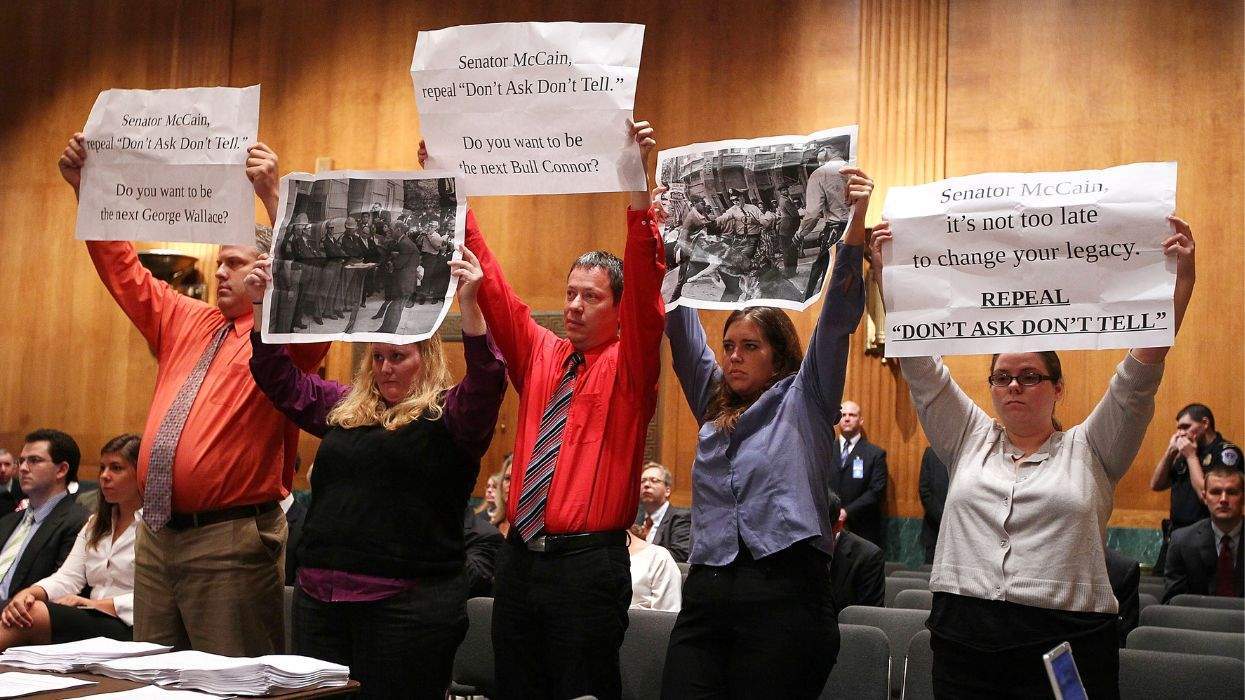

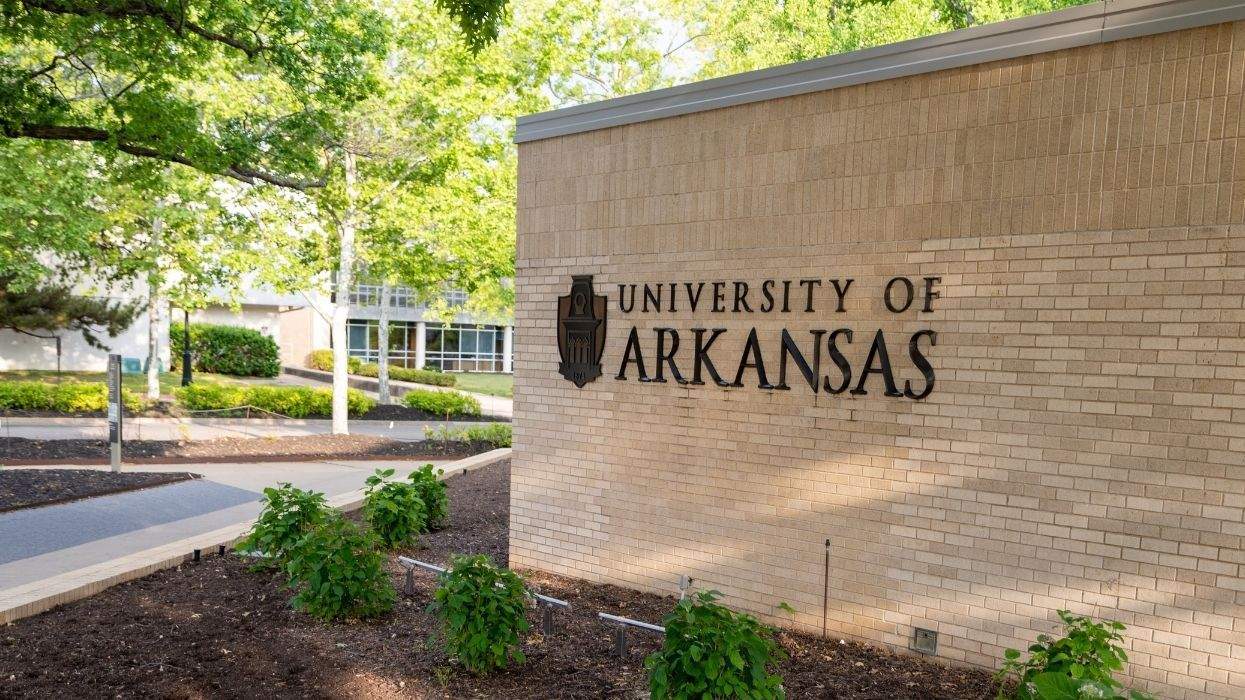
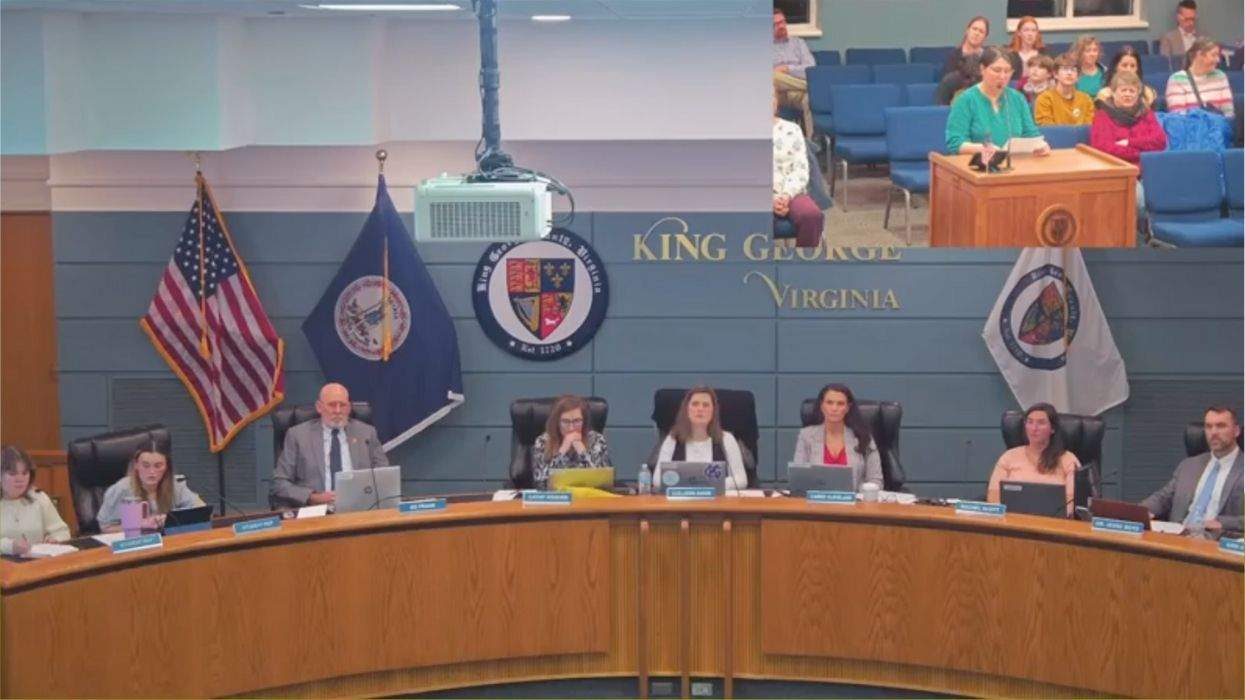
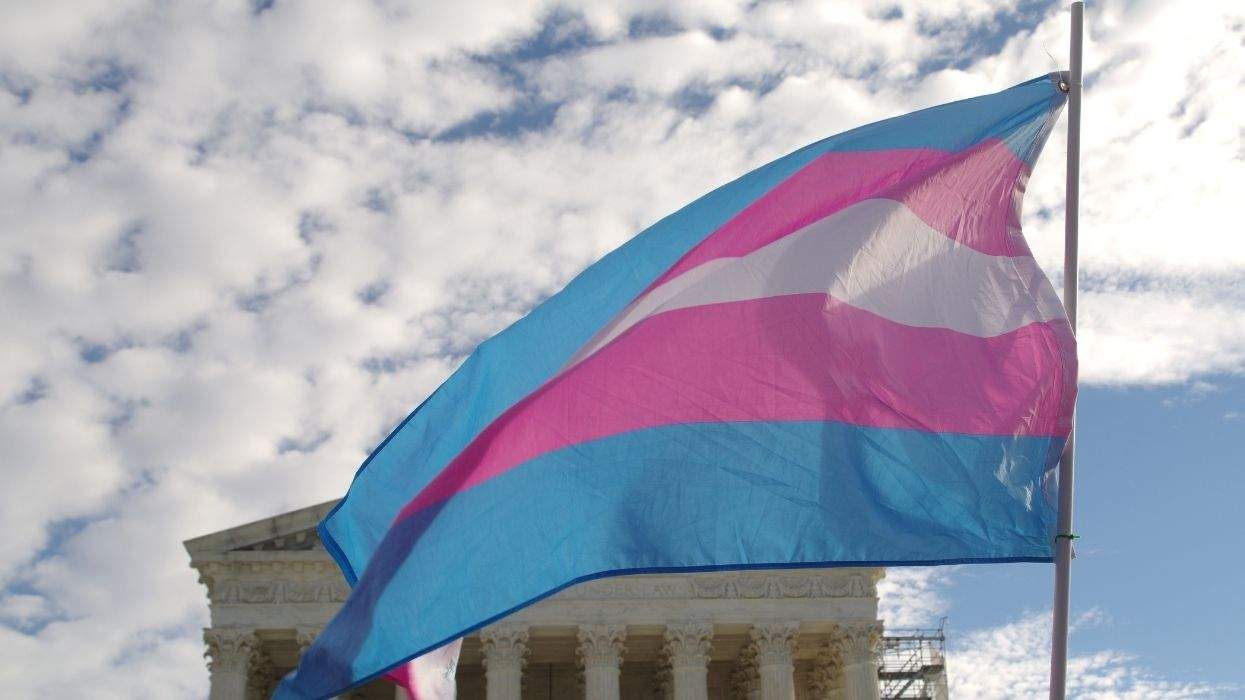
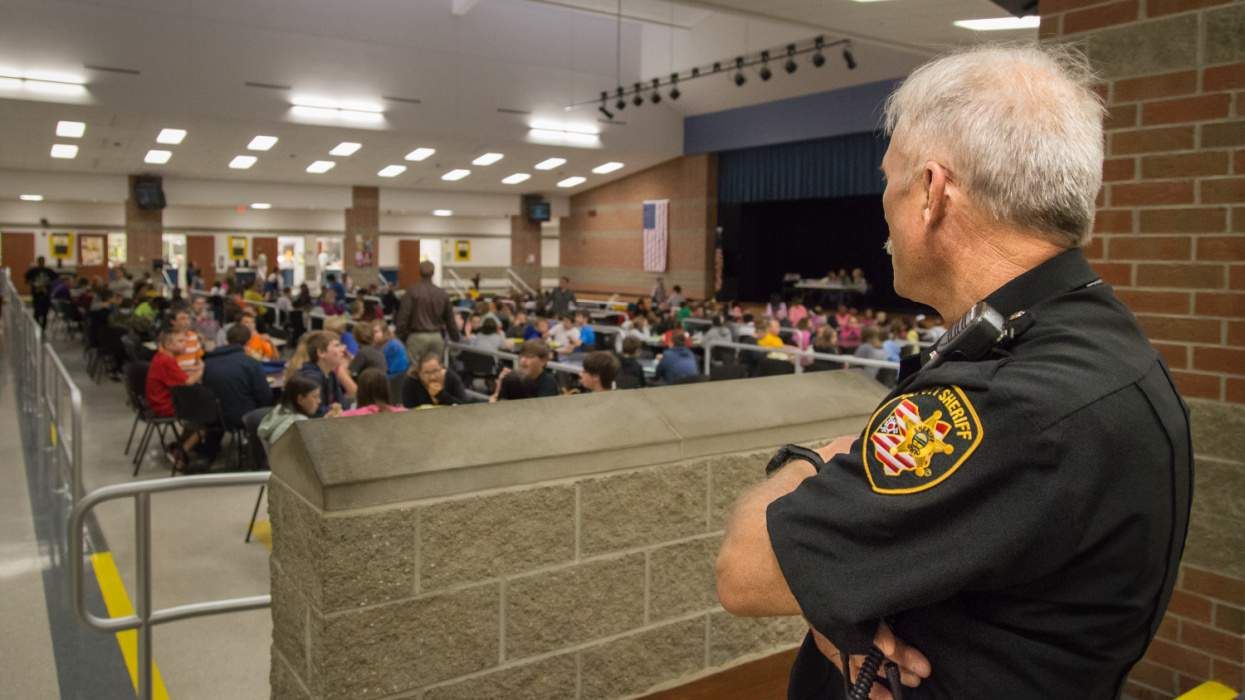


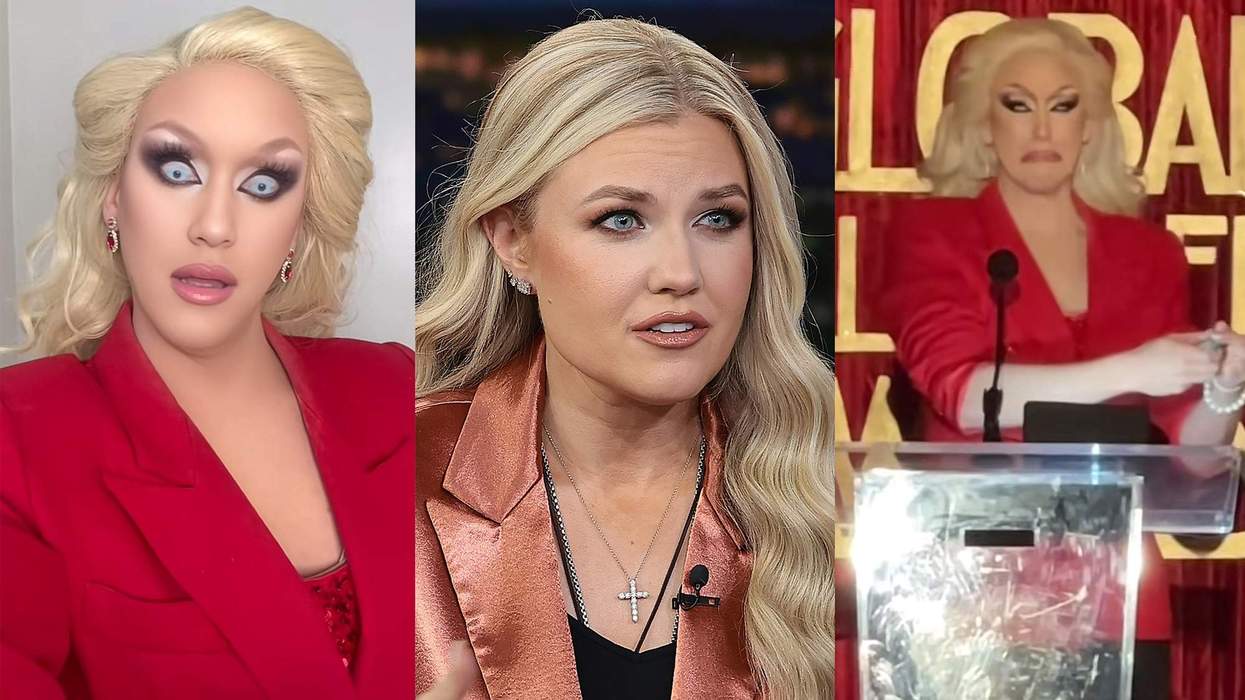
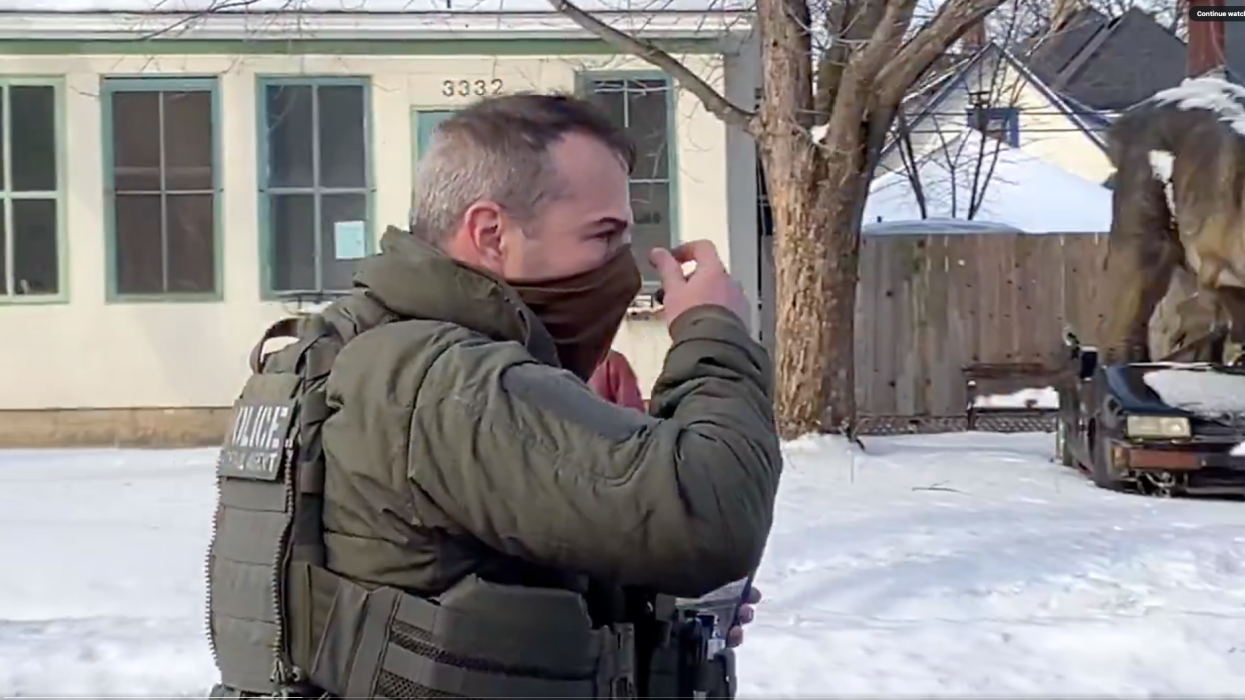
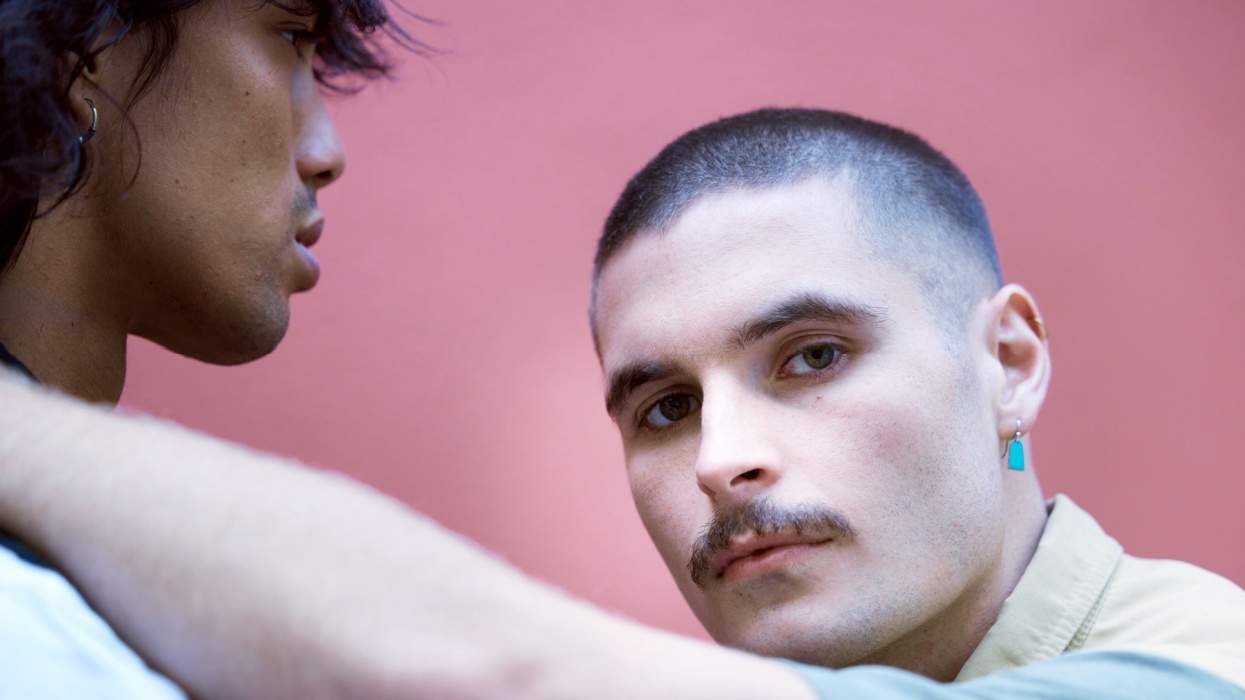
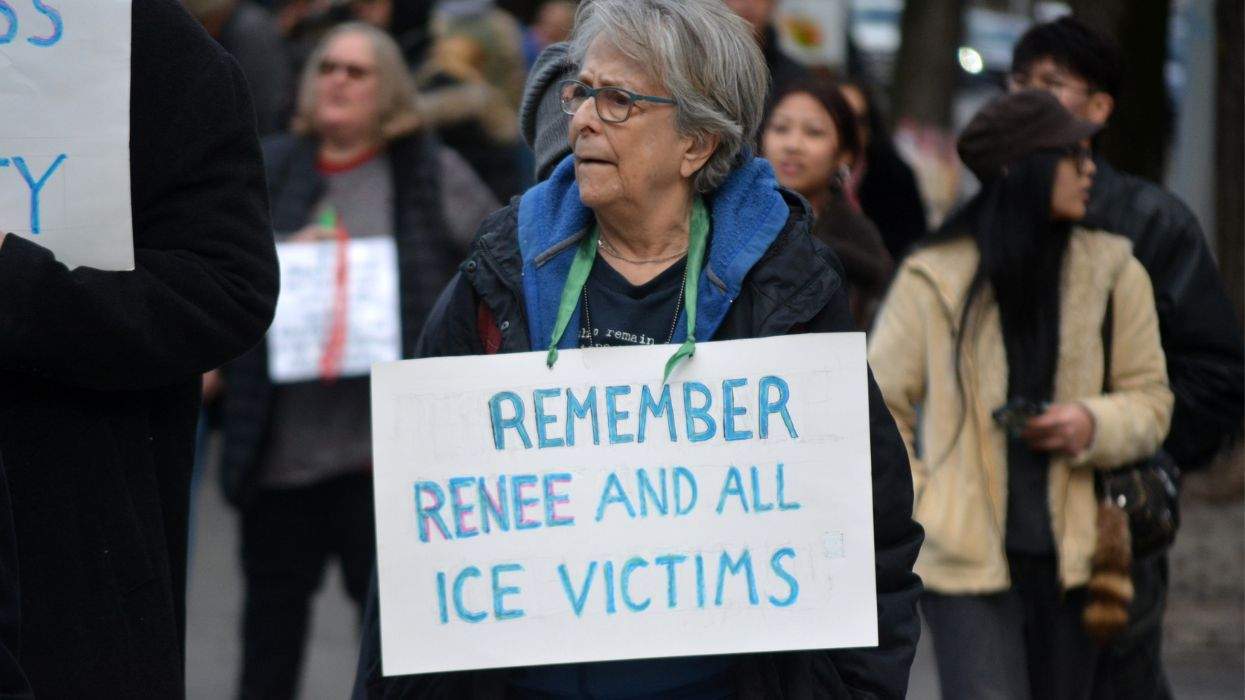
Charlie Kirk DID say stoning gay people was the 'perfect law' — and these other heinous quotes
These are some of his worst comments about LGBTQ+ people made by Charlie Kirk.